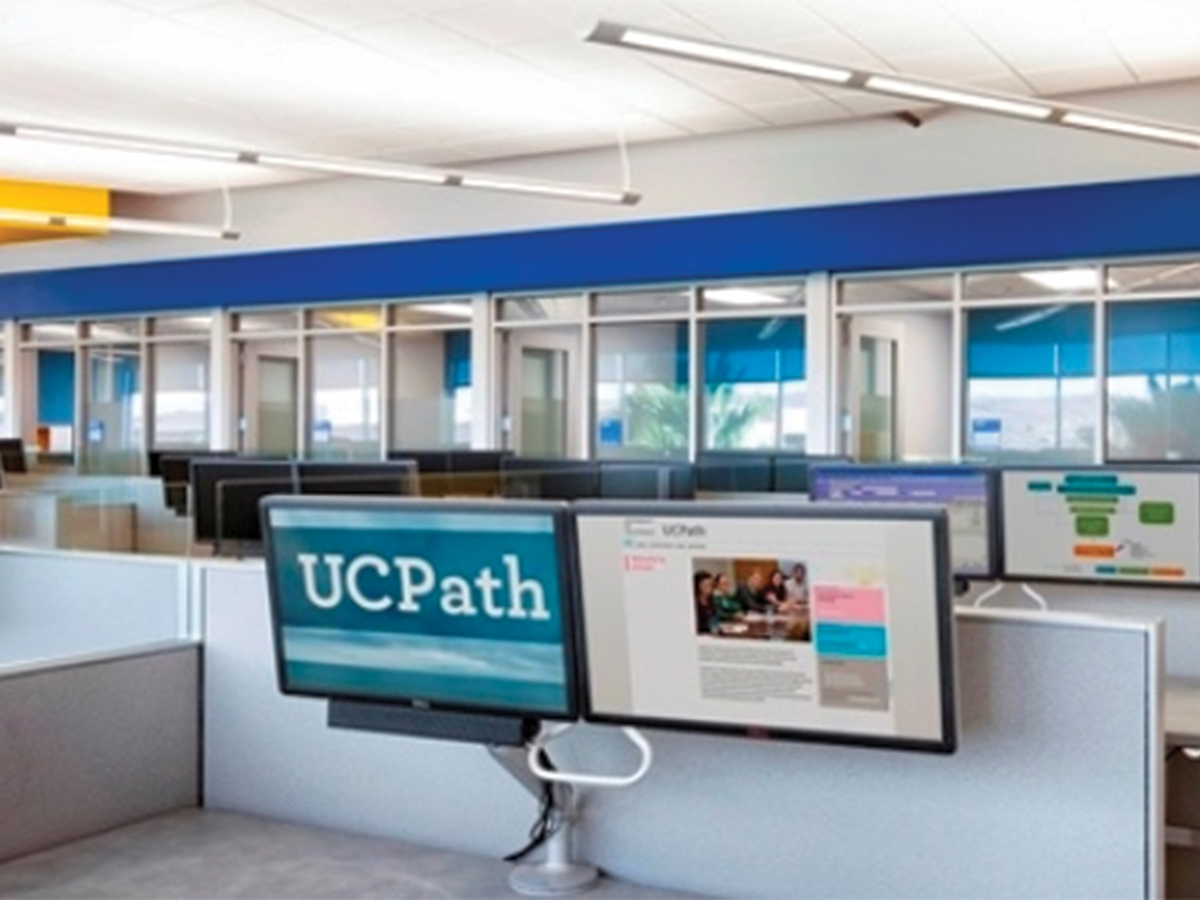The UCPath system, which has been gradually spreading throughout the UC campuses, will pay out more than $162,000 in make-whole payments to student workers who, as a result of errors in the UCPath system, received missed, delayed or less than expected paychecks.
In an interview with the Highlander, Claire Doan, the director of media relations at the UC Office of the President (UCOP), stated that “it is important to address the financial hardships of the small number of students who experienced payroll problems and reached out to the union with a proposal to provide these payments. After months of negotiations with UAW, we believe we have reached a fair agreement to help impacted students.”
According to Doan, student leaders first informed them that students whose pay was disrupted were being subjected to late fees and other fines ranging from $10 to $150. “We decided to apply the high end of that range to everyone affected and accounted for taxes, so impacted employees will receive a net of $150 – and up to $450, as appropriate and warranted by circumstances,” stated Doan.
UC and the UC Student-Workers Union (UAW) Local 2865 worked to identify roughly 750 represented and unrepresented students who were affected during the course of several months of payroll following UCPath deployments. Doan noted that 750 students are equivalent to 2.5 percent of all UC student employees served by UCPath, or less than one percent of all UC employees on UCPath.
The university will send a notification letter and payment in the form of a check to impacted employees within 60 business days. Doan stated that represented students who were affected but do not receive payment should contact UAW; unrepresented student employees with similar concerns should reach out to their campus payroll representative.
Doan believes that problems with UCPath and the recent rollout were due to a number of primary factors: conversion of data from the old system and staff getting used to the new system. In order to address these issues, UCPath and the UC are making a number of improvements. UC campuses are expanding the use of loaded pay cards as a quick, efficient solution for impacted students, as well as same-day and overnight checks.
The UCPath Center is also sharing reports with campuses before final payroll calculation to ensure that student payroll is correct, and that time cards are received from the campus. Doan also stated that UCPath representatives met with student leadership from UCLA, UC Santa Barbara and UCR to listen to their concerns and brainstorm solutions.
“We will also continue engaging student associations, which have proven to be instrumental in communicating with students,” stated Doan. The UC and UCPath additionally plan to enhance communication to students before and after the campus deployments, especially with respect to how to get they can quickly get help with pay issues. Furthermore, the UC and UCPath are implementing deeper, more comprehensive training for those carrying out campus transactions on student issues.
In an interview with the Highlander, Gerry Bomotti, the chief financial officer and vice chancellor for planning and budget, stated that he is not aware of the exact number of students at UCR who were included in the $162,000 settlement by the UC. However, he stated that “our records show a very high number of UCR graduate students with incorrect paychecks since UCPath started.” Despite this, Bomotti noted that the situation has improved over the year that it has been implemented at UCR.
According to Bomotti, the issues surrounding UCPath especially impacted graduate students at UCR. He stated that, “with any new system there is a learning curve to understand the new technology and sometimes this leads to some errors.” The most prevalent issue for graduate students in UCPath’s system is that UCPath assumes that all graduate students are subject to all payroll deductions, such as deductions made by retirement. If the student enrollment feed from the campus lines up with the UCPath process and they are deemed an enrolled student, UCPath does not take these deductions.
There have been many instances, however, where the deductions were taken, leading to underpayments to UCR students. Additionally, many of UCR’s graduate students have multiple appointments for different jobs across campus. Bomotti stated that in some cases this means that they are involved with more than one processing center; “if there is not careful coordination of the processing of these multiple jobs it can lead to errors.”
Bomotti felt it was important to note that an issue that is always present for any system, is that not only graduate students, but all employees, will not be paid if their paperwork is not entered into the system by the required deadlines. The UCPath deadlines are earlier than the previous system deadlines and this has led to some students not getting paid due to missing this processing deadline, according to Bomotti. He stated, “Many UCR graduate students have endured hardships due to not being paid on time or being paid incorrectly. These issues have improved over time, or so it appears to us at UCR.”
Bomotti noted that UCPath is a very large and complex system, being implemented for all of the UC system. “While there have been many improvements to the system over the year plus that we have been on it, the UCPath staff also face challenges with more and more UC campuses coming onto UCPath,” stated Bomotti. This diverts attention away from finalizing some of the improvements that are ideal to be made to the system.
Over the course of the next year all UC campuses will be on UCPath and Bomotti stated that, “I do believe there will be time to address some of the improvements we would all like to see, which will increase efficiency in the use of the system and decrease any errors to our staff (especially graduate students).”








